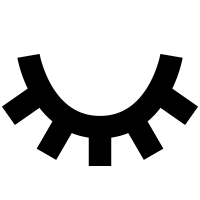Homo consumericus: Is this the ultimate stage of human evolution?
- Alphator
- Jul 1, 2020
- 2 min read
Not so long ago, the daily life of the urban human boiled down to three essential components: subway, work, sleep. Today, it's more likely to be: subway, work, consume. We no longer have time to sleep. If we did, where would we find the time to shop?
Ultimate modern comfort
The establishment's economists are adamant: growth is the key to society's well-being or, more fundamentally, to its survival. Produce more, always more. And since it is necessary for everything produced to be used for something, the only solution to selling stock is for us to consume more. This has another advantage too: it is a good way to spend the money that is earned by producing. The money thus re-enters the system, allowing for more investment, and the production of new goods that the same system will consume in one way or another. This circle, for the aforementioned economists, is considered virtuous. Without it, no progress, no fulfillment, no future. Is an embryonic moment of doubt possible? Perhaps.
Alt-economists respond to tit-for-tat productivists
20% of the richest landowners over-consume and waste 86% of available resources, while others toil daily for a hunk of bread or a bowl of rice — or sometimes are driven to throw themselves down the path of enforced migration to earn the simple right to breathe. What to do? How, each in our own small way, can we help end this human and ecological carnage? Maybe we can start by listening to those who do not speak the establishment's language. Do not jump at the latest phone produced by Apple, for instance, but instead choose a product like Fairphone, designed to be serviceable for a long time, with components that can easily be replaced. Choose to buy local products made using short supply chains where possible, rather than exotic goods, with their calamitous carbon footprints and poverty wages. Rent what you need rather than borrowing money to buy it. Subscribe to an energy supplier offering 100% renewables. Recycle rather than throwing things away... Changes like these may seem small but can transform our world, so long as awareness makes its mark and becomes contagious. In North America, the undisputed home of blind overconsumption, people's habits are shifting slowly, yet inexorably. Over 60% of North Americans now believe it is important to choose a product that's the result of an ethically and environmentally responsible manufacturing process, and almost half say they would be "likely" to accept that they'd have to pay more. All it takes is a computer and an Internet connection to begin a pattern of alternative consumption. If we search somewhere between the economy and economizing, Homo sapiens, that evolutionary aberration, can set itself on a different course. "The missing link between ape and man? It's us," says the French comedian Pierre Dac. There are grounds for hope yet.







Comments